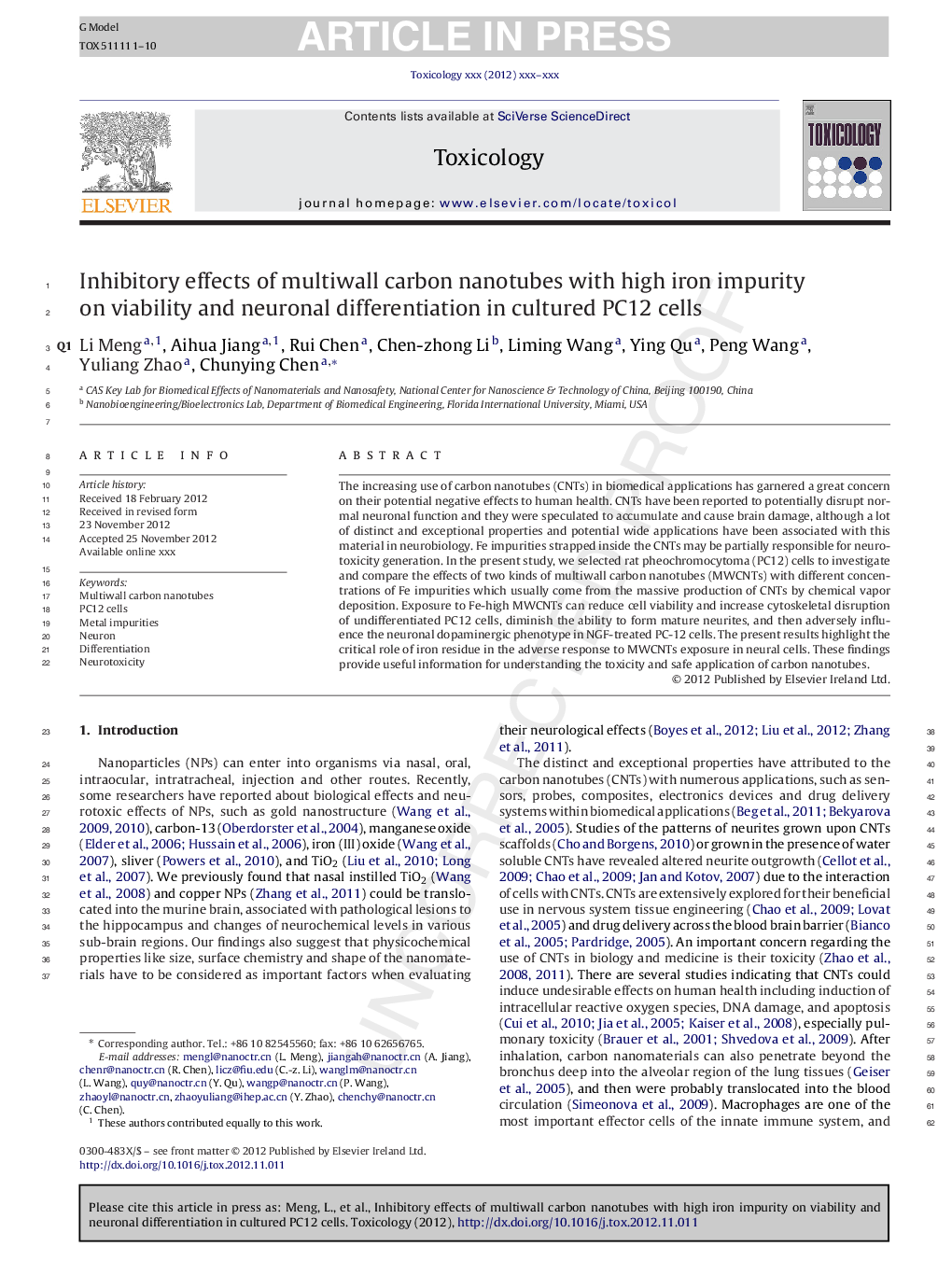| کد مقاله | کد نشریه | سال انتشار | مقاله انگلیسی | نسخه تمام متن |
|---|---|---|---|---|
| 5859301 | 1132468 | 2013 | 10 صفحه PDF | دانلود رایگان |
عنوان انگلیسی مقاله ISI
Inhibitory effects of multiwall carbon nanotubes with high iron impurity on viability and neuronal differentiation in cultured PC12 cells
دانلود مقاله + سفارش ترجمه
دانلود مقاله ISI انگلیسی
رایگان برای ایرانیان
کلمات کلیدی
موضوعات مرتبط
علوم زیستی و بیوفناوری
علوم محیط زیست
بهداشت، سم شناسی و جهش زایی
پیش نمایش صفحه اول مقاله

چکیده انگلیسی
The increasing use of carbon nanotubes (CNTs) in biomedical applications has garnered a great concern on their potential negative effects to human health. CNTs have been reported to potentially disrupt normal neuronal function and they were speculated to accumulate and cause brain damage, although a lot of distinct and exceptional properties and potential wide applications have been associated with this material in neurobiology. Fe impurities strapped inside the CNTs may be partially responsible for neurotoxicity generation. In the present study, we selected rat pheochromocytoma (PC12) cells to investigate and compare the effects of two kinds of multiwall carbon nanotubes (MWCNTs) with different concentrations of Fe impurities which usually come from the massive production of CNTs by chemical vapor deposition. Exposure to Fe-high MWCNTs can reduce cell viability and increase cytoskeletal disruption of undifferentiated PC12 cells, diminish the ability to form mature neurites, and then adversely influence the neuronal dopaminergic phenotype in NGF-treated PC-12 cells. The present results highlight the critical role of iron residue in the adverse response to MWCNTs exposure in neural cells. These findings provide useful information for understanding the toxicity and safe application of carbon nanotubes.
ناشر
Database: Elsevier - ScienceDirect (ساینس دایرکت)
Journal: Toxicology - Volume 313, Issue 1, 8 November 2013, Pages 49-58
Journal: Toxicology - Volume 313, Issue 1, 8 November 2013, Pages 49-58
نویسندگان
Li Meng, Aihua Jiang, Rui Chen, Chen-zhong Li, Liming Wang, Ying Qu, Peng Wang, Yuliang Zhao, Chunying Chen,